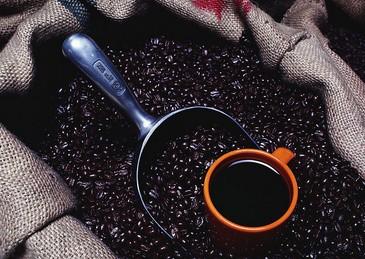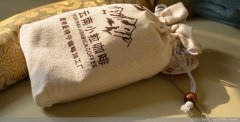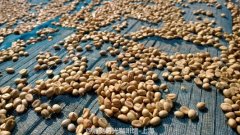A brief introduction to the treatment methods of Grinding degree and roasting degree of Coffee in Yinshan Manor, Blue Mountain Coffee Mountain, Jamaica

By 1981, about 1500 hectares of land in Jamaica had been reclaimed for coffee cultivation, followed by the opening of another 6000 hectares of coffee land. In fact, today's Blue Mountain area is a small area with a planting area of only 6000 hectares, and it is impossible to grow all the coffee marked "Blue Mountain" there. Another 12000 hectares are used to grow two other types of coffee: Alpine Top Coffee and Jamaican Superior Coffee. [introduction to the country of production]
The planting conditions in Nicaragua are not inferior to those in Central American countries. Coffee with shade at high altitude is grown in a round and balanced taste with less sharp acid. The main unknown factor is war and hurricanes, resulting in the unsustainable operation of a single farm. There is no historical data for raw bean merchants to track and consult farm data, until after 2003, the bad factors leading to coffee quality are removed, and backward traffic is also fully built. Good coffee continues to emerge.
Nicaraguan coffee is grown in fertile volcanic soil, and SHG is the best harvested from 1500 to 2000 meters above sea level. The local climate belongs to alpine terrain, which is surrounded by thick fog all the year round and covers the whole mountain forest, resulting in a low-temperature, humid and humid climate. Years of mating evolution of tree species and insisting on the ancient and time-consuming treatment process retain natural acid and strong aroma. The shaded planting sunshine is uniform, and the coffee fruit grows slowly and indirectly absorbs the moisture caused by the thick fog, so the flavor of coffee beans is lively and changeable, such a good coffee growing environment. Therefore, the coffee bred has the characteristics of slightly sour and moist. After careful taste, the aroma of fruit and chocolate can be vaguely released from the throat, rich mellow and multi-level sweet taste, even with the simplest filter-drop brewing. It can also satisfy the desire of your taste buds, so that drinkers can't help but fall in love with the charming taste.
When it comes to Jamaica, everyone's eyes lit up immediately, because it produced the best "Jamaican Blue Mountain Coffee" (Jamaica Blue Mountain) in the world. We absolutely believe that Jamaica Blue Mountain Coffee is the best coffee, its acid, sugar, alcohol and bitterness are well balanced, fragrant and smooth to drink, but its price is so high that although it is worth a try, there is no need to be fascinated by it. Because other selected coffee also has its own characteristics, and the taste is delicious, the price is also reasonable, this is the good coffee in our life.
The earliest "Jamaican Blue Mountain" refers to the coffee produced by "Warren Ford Farm" and "Silver Hill Farm", with the former of the best quality; today, the Jamaican Blue Mountain refers to coffee beans growing in the Blue Mountain area (more than 1000 meters high) east of Kingston, the capital of Jamaica. Now Mawei is the largest manor, its barrel is printed with M.B.C.F, and its products are often found in Taiwan. The quality control of the Blue Mountains in Jamaica is very strict, and the certification work is carried out by the government's "Coffee Industry Committee".
Coffee beans that generally grow at low elevations and other areas can only be called "Jamaican mountain beans" or "Jamaican waterwashed beans". Compared with the Jamaican Blue Mountains, they have a lot of flavor, but, these producing areas are twice the size of the real blue mountain areas, and the output accounts for 75% of the country's output, so when you buy Jamaican coffee, don't think you bought blue mountain coffee.
Because Jamaica Blue Mountain is so famous, there are fake Blue Mountain Coffee on the market, or simply called "Blue Mountain Coffee". It is basically a comprehensive product prepared by the store. there may not be a real Jamaican blue bean in it.
History editor
In 1717 King Louis XV of France ordered the cultivation of coffee in Jamaica for twenty years.
In the mid-1970s, the Governor of Jamaica, Sir Nicholas Lloyd (Nicholas Lawes), imported Arabica seeds from Martinique and began to plant them in St. Andrew. To this day, St. Andrews is still one of the three major producers of Jamaican Blue Mountain Coffee, with the other two producing areas: Portland (Portland) and St. Thomas (St.Thomas). In eight years, Jamaica exported more than 375 tons of pure coffee. In 1932, coffee production reached its peak and more than 15000 tons of coffee was harvested.
In 1950, the Government of Jamaica established the Jamaica Coffee Industry Committee (the Jamaica Coffee Industry Board), which sets quality standards for Jamaican coffee and oversees the implementation of quality standards to ensure the quality of Jamaican coffee. The Commission awarded special official seals to raw and roasted coffee exported from Jamaica, which is the highest-level national coffee institution in the world. The origin of Blue Mountain Coffee can be represented by Mavis Bank Coffee Factory (M.B.C.F), Blue Mountain Coffee Co-operative Factory (M.H.C.C.T.), Portland Blue Mountain Coffee Cooperative Factory (P.X.X.S.H.), Coffee Industry Association (Wallenford), Coffee Industry Association (St. John Peak) and J.A.S.
By 1969, the situation had improved because the use of Japanese loans had improved the quality of production, thus ensuring the market. By now, this kind of coffee has reached the point of being feverishly loved.
Important Notice :
前街咖啡 FrontStreet Coffee has moved to new addredd:
FrontStreet Coffee Address: 315,Donghua East Road,GuangZhou
Tel:020 38364473
- Prev

A brief introduction to the Historical and Cultural Development of the Origin of Coffee in Yinshan Manor in St. Thomas, Jamaica
In 1944, the Jamaican government realized the necessity of regulating the blue mountain coffee industry and reformulated three regulatory suggestions for the blue mountain coffee industry: ① concentrated on the processing of blue mountain coffee beans, ② established the blue mountain coffee quality standard, and ③ established CIB, which is responsible for the organization, management of the market and the role of export supervisor. In 1948, the world-famous Jamaican Coffee Agency (CIB) was formally established.
- Next

A brief introduction to the Market Price of Coffee varieties in Yinshan Manor, Fine Coffee Manor in Jamaica
Cup test features: a perfect and delicate balance of acidity, mellow thickness and aroma. Its acidity is bright and delicate. Its body is as smooth as velvet. Silver Mountain Manor Coffee has a slightly penetrating aroma, accompanied by floral, spicy, and citric acid tones. There is a hint of cocoa after the entrance. The house in Clifton Hill Village, during the 19th century, in the Royal Mountains and Blue Mountains of Hong Kong.
Related
- Does Rose Summer choose Blue, Green or Red? Detailed explanation of Rose Summer Coffee plots and Classification in Panamanian Jade Manor
- What is the difference between the origin, producing area, processing plant, cooperative and manor of coffee beans?
- How fine does the espresso powder fit? how to grind the espresso?
- Sca coffee roasting degree color card coffee roasting degree 8 roasting color values what do you mean?
- The practice of lattes: how to make lattes at home
- Introduction to Indonesian Fine Coffee beans-- Java Coffee producing area of Indonesian Arabica Coffee
- How much will the flavor of light and medium roasted rose summer be expressed? What baking level is rose summer suitable for?
- Introduction to the characteristics of washing, sun-drying or wet-planing coffee commonly used in Mantenin, Indonesia
- Price characteristics of Arabica Coffee Bean Starbucks introduction to Manning Coffee Bean Taste producing area Variety Manor
- What is the authentic Yega flavor? What are the flavor characteristics of the really excellent Yejasuffi coffee beans?

